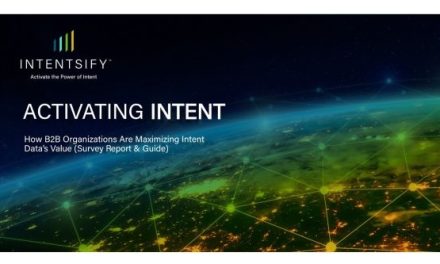 Why due diligence into potential partners has never been more important amid soaring COVID-related fraud.
Why due diligence into potential partners has never been more important amid soaring COVID-related fraud.
 COVID-19 has caused around 4 million deaths, thrown tens of millions into unemployment and wrecked countless businesses around the globe. But, as ever, unscrupulous criminals are eager to exploit the vulnerabilities exposed by the pandemic and, in particular, the vast programmes launched by governments to support economies. Worldbox Business Intelligence believes the issues of company ownership and default will become of increasing importance in the near future and is ready to respond to the needs of clients.
COVID-19 has caused around 4 million deaths, thrown tens of millions into unemployment and wrecked countless businesses around the globe. But, as ever, unscrupulous criminals are eager to exploit the vulnerabilities exposed by the pandemic and, in particular, the vast programmes launched by governments to support economies. Worldbox Business Intelligence believes the issues of company ownership and default will become of increasing importance in the near future and is ready to respond to the needs of clients.
In the wake of the pandemic, governments around the world opened the purse strings to support economies and businesses. In the UK, for example, government-backed “bounce-back” loans have been the most popular of the COVID-19 loan schemes, with more than £46.5bn released to more than 1.5 million businesses that said their operations were at risk due to COVID-19 lockdown measures.
The scheme ran from May 2020 to March 2021 and offered businesses loans worth up to £50,000, capped at 25 per cent of turnover, at an interest rate of 2.5 per cent. The first 12 months were payment- and interest-free for borrowers.
However, tens of billions of pounds lent through COVID-19 support schemes is unlikely to ever be repaid, according to a report published by the UK parliament’s Public Accounts Committee at the end of June, because the government dropped basic fraud checks and rolled out the programme in haste.1
Similar stories can be found around the globe according to Adrian Ashurst, CEO of Worldbox Business Intelligence:
 “Many companies received financial support from banks and governments, but sadly there have been numerous cases of fraud – reflecting the urgency and lack of adequate checks conducted into applications for assistance. Consequently, there are many ‘zombie’ companies that have either changed their activity, or were formed rapidly with the sole intention of obtaining COVID-related financial aid, that will never be able to repay the funds.”
“Many companies received financial support from banks and governments, but sadly there have been numerous cases of fraud – reflecting the urgency and lack of adequate checks conducted into applications for assistance. Consequently, there are many ‘zombie’ companies that have either changed their activity, or were formed rapidly with the sole intention of obtaining COVID-related financial aid, that will never be able to repay the funds.”
Worldbox is getting multiple requests from various sectors for information on liquidations in particular countries. “Fortunately”, adds Adrian, “we have been able to quickly harvest that data from publicly-available sources and format it to suit the bespoke needs of every client.”
There is plenty of evidence to support Adrian’s argument that the number of ‘zombie’ companies, defined as businesses unable to cover debt-servicing costs from current profits over an extended period, is increasing.
A report from the reinsurer Swiss Re, published in June 2021, draws attention to two points. First, global default rates in 2020 were lower than in past recent crises and are expected to remain below peak levels, highlighting the effects of the measures taken, according to data from the ratings agency S&P. Second, according to the Institute of International Finance (IIF), non-financial corporate debt in the US rose from under 75 per cent in autumn 2019 to over 90 per cent in spring 2020, while bank loans to small-and-medium enterprises (SMEs) increased by 6 per cent.
Swiss Re quotes the IIF as saying that “Low interest rates have enabled these fragile businesses to accumulate more debt, thus increasing the risks that more of these unprofitable businesses become ‘zombie’ firms”. This is particularly true, Swiss Re says, of those non-listed SMEs that are heavily reliant on bank loans as their main financing avenue.2
Moreover, the pandemic has exposed companies in other ways. Supply-chain disruptions, for example, have led many organisations to begin new third-party relationships without typical due diligence, according to the professional services network EY. EY says the European Anti-Fraud Office “has identified hundreds of companies acting as intermediaries, or traders of counterfeit or substandard products linked to the pandemic”.3
A survey by the business consultants BDO UK highlights the scale of the problem. More than a third (39 per cent) of firms experienced a year-on-year increase in fraud during 2020, according to BDO’s Fraud Track Survey, published in February 2021. In total, six in ten businesses (60 per cent) said they had experienced fraud in 2020, with the average loss totalling £245,000. Unsurprisingly, three-quarters (76 per cent) of business owners and directors think their company is more exposed to fraud since the emergence of COVID-19 – with one in five (22 per cent) saying their exposure has increased “significantly”.4
In India, more than 45 per cent of businesses have seen an increase in fraud amid the pandemic, according to a report published in July 2021 by the credit reporting company Experian. Although 90 per cent of businesses in India say they have implemented strategies related to recognising their customers across their various platforms – the highest among all regions surveyed in the global report – only 18 per cent of organisations surveyed in India are confident in preventing new types of fraud.
While business support programmes backed by governments have resulted in an increase in zombie companies, the pressures of the pandemic and supply-chain disruptions have led many companies to explore relationships with new partners without conducting adequate due diligence. Worldbox Business Intelligence has the global resources to allow clients to establish the credentials of potential business partners rapidly and cost-effectively.
Sources
2 https://www.swissre.com/institute/research/sonar/sonar2021/zombie-companies.html
3 https://www.ey.com/en_gl/assurance/why-covid-19-made-fraud-and-compliance-a-bigger-issue
Guest Post Courtesy WORLDBOX



























